The digital era has, of course, no bearing on the so-called missing link in human evolution, but it has, in its own way, found a parallel in the evolutionary process of primates (from knuckle-walking apes to erect homo sapiens), with tech geeks spearheading the digital evolution, which began with the humble transistor in 1947.
That little transistor has shed its knuckle stance eons ago to fly into uncharted territories and digitise the world that has, as quickly, adopted all things digital. From smartphones to smart cities, the world has been taken over, literally, by ‘digital’ masters who wield their tech powers and keep raising the digital bar with every new invention. Whether this stupefying journey, leading to machines communicating with each other, is the equivalent of anatomically modern humans is something we can all wait and watch.
But in the meanwhile, take a pause from all things digital, rewind to the seemingly quixotic days when ‘smart’ was a human trait to define brightness, and then pan to the present to fathom the changes that have been brandished by the digital wand; before pressing the fast-forward control to assess the changes that our media is witnessing.
In the following pages, as we take a wide-eyed look at the transition to digital media, check out what experts from the new world of digital communication have to say about the emerging changes…
Presenting the changing paradigms of media, from print and broadcast to digital, through the eyes of Tariq Al Barwani*, Founder of Knowledge Oman, Saba Al Busaidi, Social Media Strategist, Baby Sam Samuel, Entrepreneur, Management Consultant and Business Mentor, and Amour Abdullah Mohammed Al Sharji, Managing Director of Elite Security Solutions.
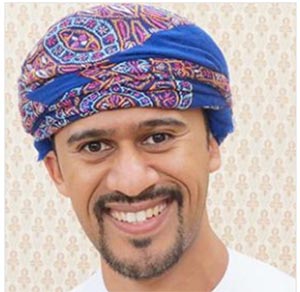
Tariq Al-Barwani is a creative technologist, social entrepreneur, business investor, public speaker, radio host and knowledge contributor who strongly believes in digital dominance.
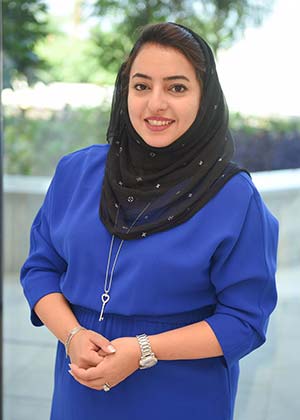

Saba Al Busaidi started her career as a civil engineer, then followed her passion in the field of social media and was voted the youngest entrepreneur in Oman; she won the Omani Women’s Excellence award in the field of technology in 2014 and is the first in the region to be certified as a Social Media Strategist.
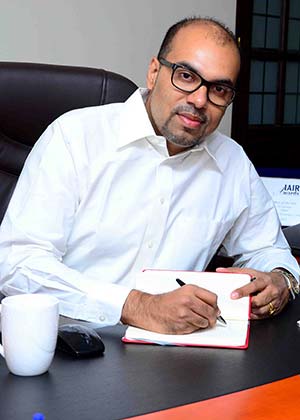

Baby Sam Samuel is the General Manager & Business Designer for Intertech LLC; Organization mentor for the design house Adventz; Director in charge of Branding & Enterprise for Knowledge Oman; and the Director of Indian Schools in Oman.
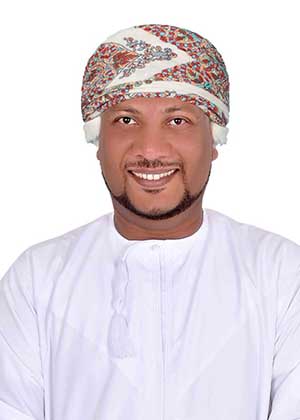

Amour Al Sharji (aka Abu Laith Al Sharji) is the Founder and Managing Director of Elite Security Solutions; he started his journey of Electronics & Security at the age of seven.
Digital Dominance
What are the implications of the increasing digital dominance on our everyday lives?
Tariq: Digital dominance is already impacting our lives in several ways – be it everyday interaction, business or information seeking. From the way we interact with friends, family, colleagues and the world as a whole, utilising the ever-growing social networking tools to the way we start, engage and launch a business via the digital media, as opposed to the traditional mortar and brick fashion. I actually feel there will be less and less of physical driven businesses in the future, yet more of digital models of the same. Finally, the way we get our news and also interact with them (two-way as opposed to the one-way communication). Digital dominance will continue to impact every facet of our lives, including education, health, sports and other fields as well. Information overload, however, will be a challenge and a distraction to be tackled.
Saba: I think we can already feel the implications of the digital world invading our lives. I mean it is sad to see a family out for dinner where everyone is on their phone. Personally, I try to silence my phone and detach so we can have real conversations. On the other end, the exposure for kids is no longer limited or easily managed like earlier… It has definitely invaded our lives; we spend so much time on, say our Tablet, then having a one-to-one conversation.
Amour: The implications of our increasingly smart world are both inspiring and frightening (as a copywriter, hearing that machines are making their way into the content realm is particularly scary!). As I started thinking about 2016 trends, it quickly became apparent that many of these same digital themes are making their way into the content marketing and social media spaces — and have been for some time.


Future of Media
Do you agree that the future of media is changing right before our eyes with smartphones, computers, and tablets becoming the primary outlets for media consumption…?
Baby Sam: The technology being flaunted in recent years is futuristic; the kind that was only captured in science fiction up until a few years ago. The world we see today, this instant, is not the world of tomorrow. The generation of Baby Boomers got to witness the amazing transformation of the world from telegrams to telephones to computers to smartphones and now smart homes, Internet of things, self-driving cars, consumer drones, 3D printers, and virtual reality. A seemingly endless array of amazing innovations has already been introduced; and they are still evolving rapidly. Technology is not just transforming; it is also diversifying. All this does indeed make this evolution appear to happen right in front of our eyes.
With globalisation, consumerisation, and Internet enabled interconnectivity, these technologies are also reaching the consumers and their minds faster than ever, while in previous generations the technological breakthroughs were slower to reach its intended target audience.
The impact of these developments on media landscape has been massive. Just a century ago, the world had only been introduced to radio. One-half of the worlds’ population, amounting to around 3.5 billion are now Internet users. The Internet and social media have altered the way people consume and share information, with smartphones and social media being the main source of media consumption for many.
As history shows us, every wave of innovation – whether industrial revolution or digital revolution produces changes that improve lives, but also causes destruction and disruption during the period of rapid adoption and rapid change. The 21st-century innovations are also disruptors, changing old economic structures and transforming society.
Tariq: Yes… Gone are the days when TV, print and radio were the only sources of information, especially with the dynamic and rapid speed of information delivery of the new digital medium; needless to mention, the simplicity and outreach these media offer are massive, as opposed to the traditional media. While the current generation is still loyal to old and traditional media, the future generation will be completely adopting digital media.
Saba: Yes, I completely agree this is the digital age. Everyone we know has a smart phone; the future is mobile. A lot of companies are switching their focus from computer screens to smartphones as, statistically, smartphones are used much more for apps, messages and notifications. I personally use my smartphone as my personal assistant, to check my calendar, emails, messages and social media.
Amour: The future of media is rapidly evolving right before our very eyes. Digital is taking over the world, and the generational shift is in full swing as millennials and Generation X age up and smartphones, computers and tablets become their primary tools for media consumption.
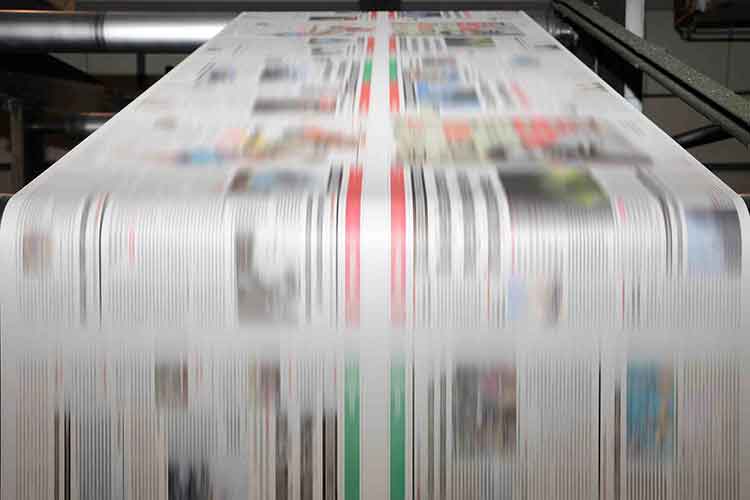

Print Media
Is there any truth in the popular perception that the newspaper industry is slowly dying?
Amour: This is certainly true in the case of newspapers – print newspapers are on the way out. However, it is wrong to say they are ‘dying’, not because the industry will be led to revitalise the press, but because the things were never alive in the first place. Newspapers are papers, a substance once organic, now wholly dead and made unnatural.
Tariq: Despite still being loyal to print media – books and magazines, there is no denying that electronic medium is getting simpler, interactive and dynamic in the way it delivers the news. I actually see it happening.
Saba: Yes, there is some truth, as I mentioned, there are global newspapers that have closed down. However, it will still take time in Oman.
Baby Sam: Circulation decline, coupled with decreasing revenue streams from print advertising, have resulted in many newspapers, even established ones, feeling the pinch. As a result, many newspapers are diversifying into other outlets that make use of the connected world.
Although there is a general perception that newspaper industry seems to be dying, it would, however, be the ‘paper’ in newspaper industry that is on the losing end. Journalism is as relevant today as it was in the past. In fact, there has been an increase in online viewership for newspapers. While last year social media overtook television as the most popular source of news, the past year also saw many scandals involving fake news, especially regarding its influence on public opinions, like the outcome of US elections. In the time of ‘alternative facts’, there is thus a very gaping need for real and reliable information, for which consumers still look up to renowned newspapers worldwide.
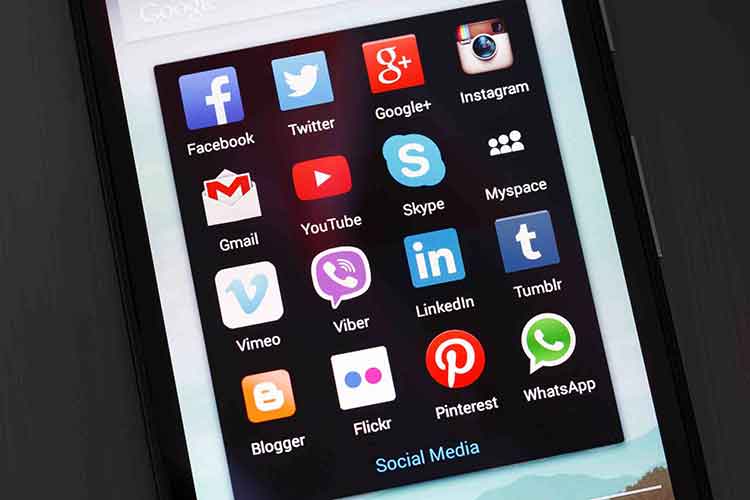

Social Media
Will social media become more influential than print and broadcast media? Do you see it happening in Oman?
Saba: Social Media has become more influential around the world. Yes, some newspapers closed down and went online, but I do not see it happening in the near future in Oman. It would take time. The recent statistics show that Oman’s population still depends or believes the news coming out of their TVs or the newspaper, which they consider to be much more reliable than the Social Media.
Tariq: Yes it is influential in many countries already, and yes, I see it happening in Oman as well.
Baby Sam: Social media, when compared to traditional print and broadcast media, enjoys a distinct advantage. Social media is multi-directional while traditional media is unidirectional. In the hands of increasingly educated, increasingly self-aware and demanding consumer, the need to connect with the brands of their choice and also wield power and influence is set to increase. Nevertheless, traditional media and advertising still hold power as a larger part of the global audience still has greater faith in the authority of traditional media.
In Oman, social media is a growing phenomenon, and that will certainly change the commercial ecosystem here. This will have the most impact on e-commerce, with more such ventures becoming a fast reality. Social media is also aiding in connecting Omani audience with each other as well as with a global field, which is beneficial for the development of the nation.
As far as the influence on the general public is concerned, all media, whether digital or print media or broadcast media will certainly have its own advantages and will, therefore, wield power.
Amour: The Internet and social media have, perhaps in more ways than we can imagine, become prominent. It has become an integral part of the youth.
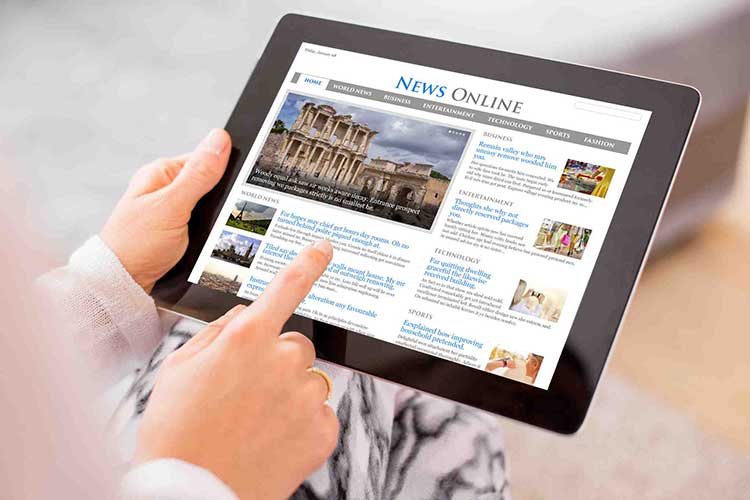

Generational Shift
Can the social media influence be classified as a generational shift…?
Saba: I do not think it is a generational shift; I think most of the current generation is digitally invaded. I never thought that my mum would be watching a sitcom on YouTube, but she does. It has got in its fold more age groups than we thought it would. However, youngsters are definitely the main drivers to this shift. With all the new online platforms that are available, there is a lot of moving away from a lot of things…even from ordering food over the phone. Now you have apps that can do that for you!
Tariq: Although the old generation is accepting and slowly adopting it, the new generation is more conversant and dependent on it.
Popular Platforms
Which are the popular social media platforms in Oman that are being relied on by the corporate sector to reach their target audience?
Saba: Twitter is considered a very important tool for corporate and government agencies, as there is a perception that Twitter is the fastest and most used platform in Oman to deliver any messages. However, that perception is wrong. Business and corporates need to understand what type of channels/ platforms work best for business.
Baby Sam: Social media is diverse, and each platform offers a different and distinctive advantage for a company depending on their business, products or service. Facebook, being the undisputed leader in social media, is popular in Oman too – both among businesses and the public. One common misconception, however, is that Facebook is the solution to all social media. Another equally wrong tactic is to jump on the newest or trendiest social media bandwagon without really understanding the unique proposition each platform presents, in terms of its operations, trends, audience and reach.
Larger or experienced corporate and organisations in Oman have begun to explore platforms like Instagram, WhatsApp and Snapchat. Effective utilization of LinkedIn, which is the global B2B leader, however, is rarely seen in Oman.
Tariq: Facebook, Instagram and Snapchat.
Amour: Twitter and Instagram


Social Media Influencers
What do you have to say about the growing role played by social media influencers in our society?
Tariq: The role played by social media influencers is exactly that of brand ambassadors, but as a larger and economical option. You can easily find influencers today at a very low price, as opposed to brand ambassadors who were hard to reach.
Saba: It is growing slowly but surely. There is a steady growth in Oman and the social media personalities are starting to slowly understand how to have monetary value out of their following. People in Oman, unfortunately, do not understand the need to pay an Omani social media personality and would rather pay someone who is from the GCC or the Arab world, which is very unfortunate. But it also goes to show that we have a lot of people who have major following; they may not be specialists in specific fields, but are more of jack-of-all-trades. Also, if we really go down to the real meaning of influencers it is someone who can influence one’s behaviour, lifestyle, buying power or restaurant views… In that sense, finding one in Oman is a bit early at this stage – again owing to the lack of expertise. Studies show that a person who advertises about everything loses his/her credibility. This is something very important to consider while trying to become an influencer.


Digital Marketing
Do you think digital marketing will prove to be a threat to conventional marketing?
Tariq: Definitely. The low cost (affordable), the mass reach (local and global), and the simplicity (from options and ease in ordering to administering and managing) is incomparable.
Saba: I think digital marketing is a complement to any marketing; it’s an additional effort to emphasise on your marketing campaigns, they usually work congruent to each other. It is definitely a faster way to send out your message or create a campaign, but we cannot deny the impact that conventional marketing has as well.
Baby Sam: This question arises from the misconception that digital marketing is an alternative to conventional marketing. Globally, companies have indeed increased their marketing spend on digital media, but they have not replaced mainstream marketing techniques.
Digital marketing is never an all-encompassing solution. It should never be seen as a threat or an alternative to conventional marketing. It is a complementary marketing approach that should be utilised in sync with all other marketing tactics, including conventional marketing.
Amour: What threats – and what opportunities – are waiting ahead is secondary to what content marketing can look like and do for you.
Digital Apps
Is the global digital industry poised to experience an explosion of apps?
Amour: The mobile advertising market is poised for exponential growth over the next several years. There are many obvious reasons for this growth; the most often cited one is the rate of mobile phone adoption itself, with global penetration of mobile phones on track to surpass three billion in the next few years, according to industry estimates. As is often the case with advertising, it is the lure of massive numbers of eyeballs fixed on a ‘third screen’ that is drawing brand marketers to this medium.
Saba: Yes, definitely, as we have seen apps ruling the mobile industry and that’s all we look at and use. However, only the strong ones will create a definite change. Just like when Instagram started, it created a whole new meaning to home businesses and ‘influencers’.
Baby Sam: On a global scale, the developed nations have already witnessed an explosion of apps. The developing nations too are fast catching up when it comes to creating and consuming apps for myriad purposes. Ultimately, only the apps that provide tangible value will flourish, given that the average user is now bombarded with choices.
On a local scale, apps developed by and for the nation is set to grow as businesses and organizations find newer ways to reach and engage their customers and users.
Tariq: Yes.


Digital Media
Any predictions on the future of digital media in Oman…
Saba: The digital media in Oman is still considered a niche, but we are seeing great interest from different entities and government authorities to not only have presence on social media, but also train their staff in this field and create operating procedures for them to follow. It will definitely see a great shift in Oman in the coming years.
Baby Sam: Digital media as a whole is slowly gaining acceptance in Oman. There are, however, still companies and businesses in Oman without any kind of digital presence. Nevertheless, this section of the market is gradually decreasing, with many choosing to focus on a company website as their first entry into digital space.
Social media, which is only a part of the wider spectrum of digital media, has gained much traction among the population, and the trend is set to grow. While the primary use of social media and digital media in Oman seems to be entertainment and connectivity, businesses have steadily begun to understand the importance of digital presence. Social Media will be an equaliser, enabling everyone with a smartphone and Internet to consume and disperse information. It will create a new generation of youth with a global outlook. In the immediate future, social media will be a key driver in advertising and e-commerce in Oman and will lead to entirely different business models. Digital media and allied technologies thus pose opportunities for entrepreneurship that can greatly benefit SME’s, bring about e-commerce, and aid in sustaining the nation’s economy.
In the current wave of technological revolution, Oman is riding on the safety of the tried and tested technologies. The nation can with the support and government utilize these to create a diversified economy that utilizes the power of the technologies, and yet does not bring about the same risk as cutting edge innovations. We can learn from the economic disruption we witness in developed nations and choose the technologies that fit our gradual model of growth.
Amour: While digital media has become a must-have in the basket of any organisation, I predict a very bright future for digital advertising in Oman.

It’s really a cool and helpful piece of info. I am glad that you just shared this useful information with us. Please keep us up to date like this. Thanks for sharing.